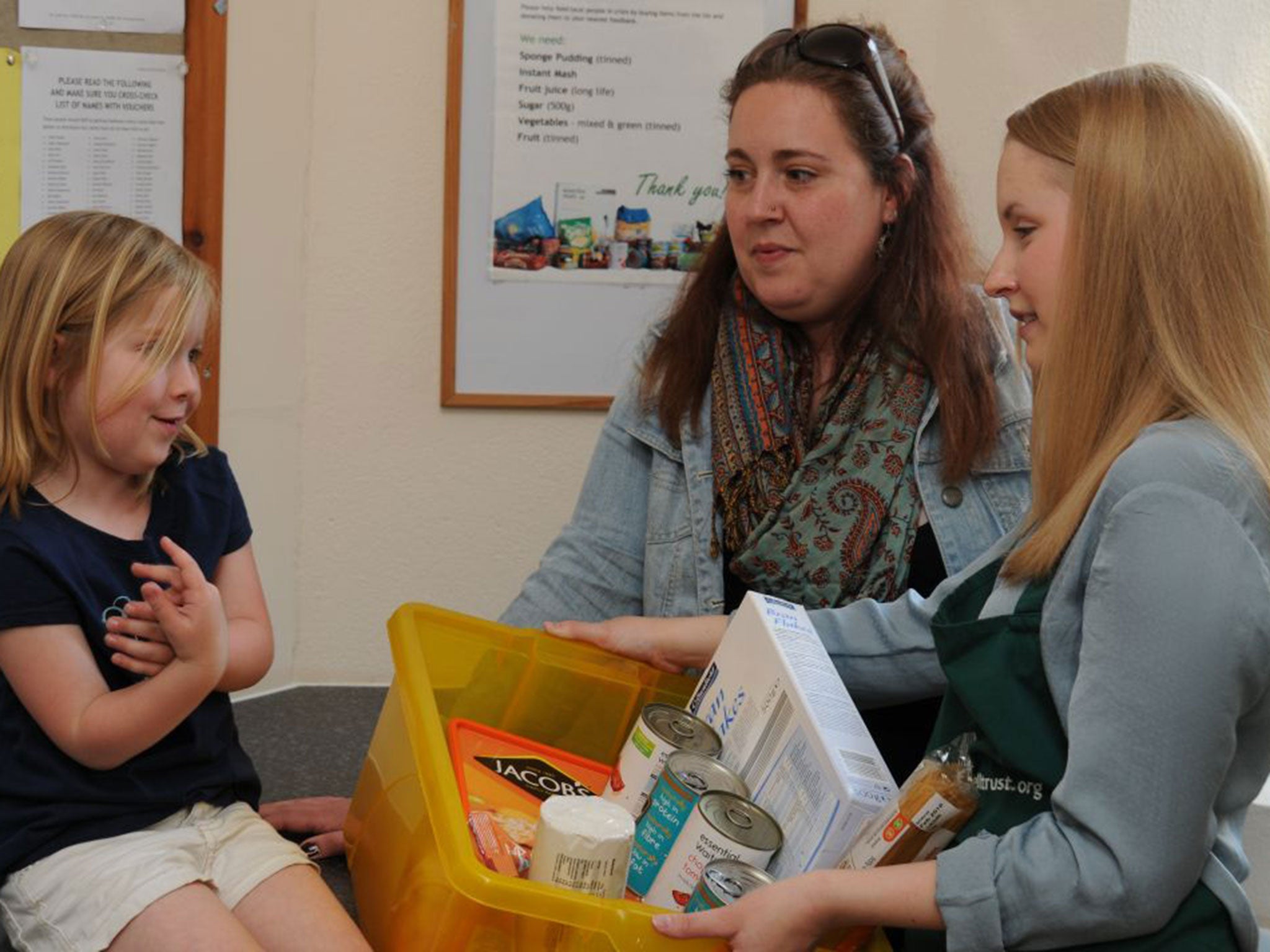3.5m children predicted to be in poverty by 2020
Charities say scale of the problem is ‘a stain on the national conscience’

Your support helps us to tell the story
From reproductive rights to climate change to Big Tech, The Independent is on the ground when the story is developing. Whether it's investigating the financials of Elon Musk's pro-Trump PAC or producing our latest documentary, 'The A Word', which shines a light on the American women fighting for reproductive rights, we know how important it is to parse out the facts from the messaging.
At such a critical moment in US history, we need reporters on the ground. Your donation allows us to keep sending journalists to speak to both sides of the story.
The Independent is trusted by Americans across the entire political spectrum. And unlike many other quality news outlets, we choose not to lock Americans out of our reporting and analysis with paywalls. We believe quality journalism should be available to everyone, paid for by those who can afford it.
Your support makes all the difference.The level of child poverty in Britain is “a stain on our national conscience”, leading charities have said as a Government adviser warns today that its reforms are failing to tackle the problem.
While the economy may be improving and home-owners are benefiting from rising prices, a shocking report published today by the nation’s social mobility tsar predicts that Britain will have 3.5 million children living in poverty by 2020.
In further evidence of the hardship faced by families across the country, a separate study to be published today shows that food charities provided more than 20 million meals last year to people in the UK who could not afford to feed themselves. The figure, from Oxfam, Church Action on Poverty and the Trussell Trust, represents a 54 per cent increase on the previous year.
The former Health Secretary Alan Milburn, who chairs the Social Mobility and Child Poverty Commission, accuses the Government of reneging on its pledge to end the phenomenon.
Mr Milburn said: “The Government’s approach falls far short of what is needed to reduce, yet alone end, child poverty in our country. Our new research shows that the gap between the objective of making child poverty history and the reality is becoming ever wider.”
Research carried out for the Social Mobility and Child Poverty Commission reveals that the 2020 target for abolishing child poverty will be missed by a large margin.
The commission’s report did find some positive things in the strategy, including the extension of childcare support for low-income families and a greater acknowledgement of the problem of working poverty.
Alison Garnham, the chief executive of the Child Poverty Action Group, said: “The Coalition established the commission as an expert watchdog on child poverty, so when it says the Government’s child poverty strategy lacks credibility, ministers must do something about it.
“Getting more parents into work, improving job security and increasing the minimum wage are all essential, but as the commission’s new research shows, it’s not enough.”
A Department for Work and Pensions spokesman said: “We remain committed to our goal of ending child poverty by 2020.”
A documentary to be aired on Channel 4 tonight, Dispatches: Breadline Kids, will reveal the desperate situation for children whose parents are struggling to scrape together enough for a meal. One mother featured on the programme, who is living on benefits with two daughters, has just £3.60 a day to spend on food.
Research to be published today by a coalition of charities reveals a dramatic increase in reliance on food banks. Oxfam, Church Action on Poverty and the Trussell Trust say the 54 per cent annual rise in meals handed out is a damning indictment of an increasingly unequal Britain where five families have the same wealth as the poorest 20 per cent of the population.
Mark Goldring, the chief executive of Oxfam, said: “Food banks provide invaluable support for families on the breadline but the fact they are needed in 21st-century Britain is a stain on our national conscience. Why is the Government not looking into this?
“We truly are living through a tale of two Britains; while those at the top of the tree may be benefiting from the green shoots of economic recovery, life on the ground for the poorest is getting tougher.”
CASE STUDY: The family and the food bank
Holly Jones, 29, from Chichester, West Sussex, had to go to a food bank to feed her daughter, Phoebe, five.
I set up a shop selling second-hand children’s clothes but it wasn’t making any money. Then in January Phoebe went into hospital and I had to shut it temporarily. It turned out to be a bad bout of tonsillitis and she was in hospital for several nights.
I’d raided the shop float to pay for hospital parking and when we came home we had nothing to eat or drink. I had to raid Phoebe’s piggy bank, which had 70p in it, for milk. My mum gave us dinner that night and the next morning I went to the food bank.
I went in there feeling mortified. The people sent us to Citizens Advice to get a voucher, and then we got food. Now I have an extra part-time job in telesales and Phoebe has finally been able to go to a friend’s birthday party this week. Before, I couldn’t take her to any because I couldn’t afford a present for the child.
Join our commenting forum
Join thought-provoking conversations, follow other Independent readers and see their replies
Comments